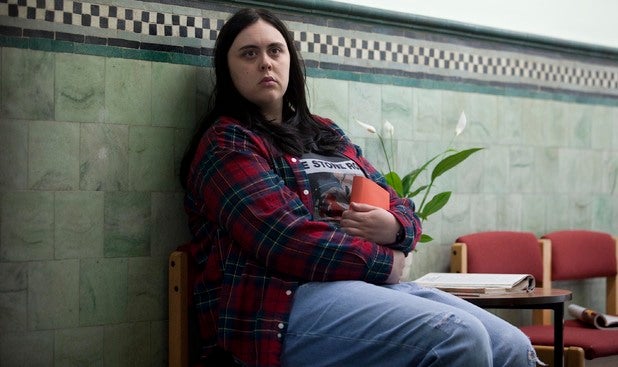Last night's viewing - My Mad Fat Diary, E4; Why the Industrial Revolution Happened Here, BBC2

Your support helps us to tell the story
From reproductive rights to climate change to Big Tech, The Independent is on the ground when the story is developing. Whether it's investigating the financials of Elon Musk's pro-Trump PAC or producing our latest documentary, 'The A Word', which shines a light on the American women fighting for reproductive rights, we know how important it is to parse out the facts from the messaging.
At such a critical moment in US history, we need reporters on the ground. Your donation allows us to keep sending journalists to speak to both sides of the story.
The Independent is trusted by Americans across the entire political spectrum. And unlike many other quality news outlets, we choose not to lock Americans out of our reporting and analysis with paywalls. We believe quality journalism should be available to everyone, paid for by those who can afford it.
Your support makes all the difference.Obesity is the zeitgeist on TV these days, it seems, with stories of embarrassing bodies becoming ever more telegenic. Teenage obesity was a variation on the theme that fuelled My Mad Fat Diary, a new sixth-form drama of dysfunctionality. "Dear diary," announced the anti-heroine, Rae. "I'm 16, I weigh 16 stones and I live in Lincolnshire. My interests include music, vegging out and finding a fit boy – scratch that – any boy, to quench my ever-growing horn."
With these words, this mad fat comedy, scheduled to fill the end-of-series hole left by reality TV show Made in Chelsea quickly established its central themes – Rae's search for love and her battle with a 16-stone eating disorder. We met her just as she left a "mental ward", returning home with the hope of getting in with the cool kids at school.
The problem, with the first episode at least, lay not in its concept but the uninspired execution of it. The show, it seemed, tried to combine the hormonal angst of The Inbetweeners with the self-deprecation of Bridget Jones's Diary, but with none of the anarchic humour of the former (though it did have the "cringe" factor), or the generation-defining insights of the latter. The script re-cast overfamiliar scenarios that anyone forced to think of "fat nightmares" might have dredged up: Rae got stuck on a slide at a pool party, and found herself on a busy high street wearing just a bikini, with local kids laughing at her. The script's bigger sin, though, was that it just wasn't very funny.
It wasn't that Glaswegian comic Sharon Rooney wasn't efficient in her role. She did a fine job of playing a large girl who gets stuck on a slide. Like Ugly Betty, Rae is society's underdog-turned- unlikely heroine, but just as Ugly Betty doesn't convince us of her ugliness by wearing a pair of braces and silly specs, Rae's anguish also rings hollow.
Adapted from Rae Earl's book, perhaps the nub of the problem lay in its adaptation. In book form, the angst-ridden diary can immediately transport us into a world of introspective torment. On screen, it must be simplified and in this case, it seemed over-simplified. Rae's mental health was tied to her obesity, and was at least part of the reason for her admission to hospital. "There is a difference between snacking and bingeing," she repeated like a mantra to signpost the lessons learnt in therapy. As her resolve weakened, the larder at home glowed to reflect her addiction. It was about as nuanced as a traffic light.
While it is a sign of the times that a teen comedy has a plus-size protagonist, to pay homage to it for this reason alone is to patronise it with political correctness. The judgement should come from whether it works as a coming-of-age comedy, and that remains a moot point.
For those who felt that Danny Boyle's opening ceremony at the Olympics failed to recognise the part that empire played in the Industrial Revolution, Professor Jeremy Black, the historian and presenter of Why the Industrial Revolution Happened Here, righted that wrong. Analysing how and why Britain led the way at the beginning of the 18th century, he dwelt on the ways in which empire, with its many abuses, played a significant role in funding the industrial revolution.
He also highlighted how closely politics, scientific breakthrough and industry were connected. It was both Britain's growing spirit of political liberalism and its entrepreneurship that helped lead the way for James Watt's discovery of steam power. There were several delightful nuggets in this hour, not least a "what if" moment that led Prof Black to wonder if steam power would have been discovered as early as it was if Watt had been French. The answer was "non".
Join our commenting forum
Join thought-provoking conversations, follow other Independent readers and see their replies
Comments